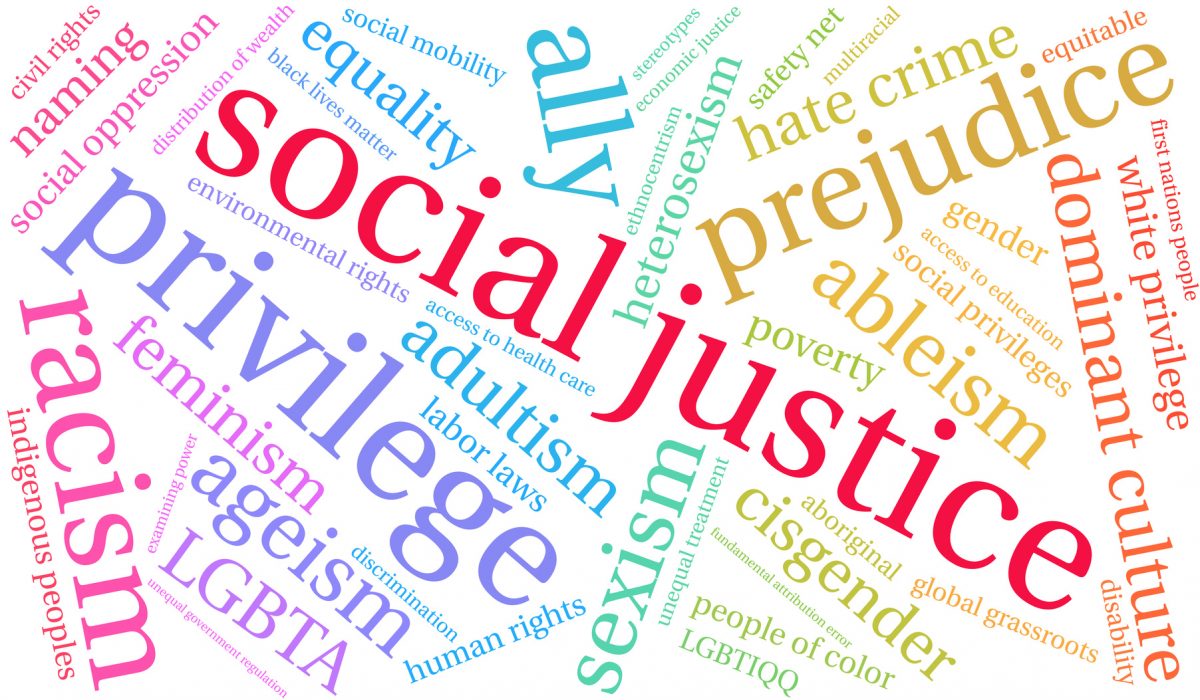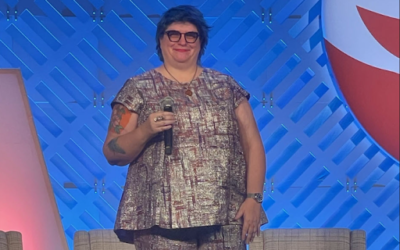Keep social justice issues at the center of the center
Tackling social justice issues can feel like déjà vu all over…and over again.
I’ve been speaking and consulting for colleges, universities, businesses and advocacy groups for over 20 years and, while I feel like I’m making progress, the questions make me…well, question it.
For example, every time a social justice movement experiences a watershed moment – good or bad – I’m asked Is this time any different than before?
While I can unequivocally say, Yes, this time is different, I recognize the pattern of questions remains the same…
…so why am I not discouraged?
Because I leave room for edits.
Advancing social justice issues requires constantly editing your judgments
We are trained to never…ever…ever…make judgments…
And yet, we all do it, all the time.
Our judgments give us a sense of comfort and control of a situation. We meet people and, almost instantly, we write a story about them.
That’s natural – and unavoidable. But not terminal to social change.
Where growth happens, where social justice issues gain ground, is in a willingness to take in new information, acknowledge changing circumstances…
…make edits to the story.
Your judgment – your story – is just an outline. As you encounter new people, at school, your job, church, or service club, you’ll have access to new thoughts, ideas, and information about social justice issues.
It’s your job to scribble these new insights between the lines and in the margins of your story.
By the way, we judge ourselves, too, not just others…often too harshly.
Keeping the center in the center: essential for meaningful social change
Have you ever come into the office after a terrible experience at a restaurant you’d never tried before?
It’s a disaster from beginning to end. You think the service is terrible and something should be said to management – but wonder if maybe it was just bad luck on your part.
You talk to several coworkers and, they agree, the restaurant needs a major overhaul.
But one coworker’s response is, Oh, that’s never happened to me before, I always get great service there…but I know the owner, he’s a good guy. I wouldn’t bother complaining if I were you.
So…Do I have to know the owner to get good service?
And, despite the fact that the majority of people I talked to agree there’s a problem, and we know someone who could actually do something about it – talk to the owner – they shrug off the problem because they’re fine with the status quo.
They moved the center of the thesis – this restaurant is terrible – to their individual, privileged experience in order to undermine your thesis.
Resist the urge to pull the problem to your center…and then dismiss it
Now, in the case of something trivial like the restaurant…just don’t go there, right? No lack of alternatives to choose from…
But when talking about social justice issues around race and gender discrimination, it’s not quite that easy.
When a transgender person has difficulty getting hired or promoted, chances are pretty good it’s not for lack of qualifications. They’re probably hitting a wall of discrimination.
The solution isn’t to point out that you know a transgender person who seems to be doing just fine…maybe they should upgrade their skills at college, or stop looking for special treatment.
The thesis is that the LGBTQ+ community has to navigate through discrimination on a regular basis. This individual’s lack of success isn’t the center of the story, it’s the discrimination.
When a black person shares a story of police brutality, the unhelpful, tone-deaf response is, Well, I know lots of black people and they’ve never been attacked by the police. What were you doing wrong at the time?
The thesis is that there’s a troubling record of police brutality against a certain cross-section of our society. It’s documented. The existence of black people who haven’t been victims isn’t the center of this issue. It’s the record of violence and the need to address it.
Check your privilege at the door
When addressing social justice issues, it’s very easy for those of us who are privileged, white, middle-class citizens with two cars in the garage and a home in the suburbs to shrug it off.
Or, worse yet, pretend to engage by pulling the center of the issue towards ourselves, rather than adding notes to our margins and leaving the thesis intact.
Leave room for edits in your story.
I’m not suggesting you change your mind or values on every issue that might run counter to your existing beliefs. But for meaningful social change to happen, we all have to be prepared to learn something new…gain new understanding.
And while shrugging off an issue is easy, diving into it can be hard. That’s where I come in.
You can engage in the conversation, and I can help you get started. Let’s get talking so we can enjoy a more diverse, inclusive social landscape.
Related posts:
The Importance of Purposeful Design Flaws
Hard topics like gun legislation have a “what” and a “who”
Crafting apologies takes understanding these 4 assumptions.
Take Your Event To The Next Level, Book Jess Today!
Take Your Event To The Next Level, Book Jess Today!
Related Blog Posts
What if it happens?
What if it happens? In 2016, the morning after the Presidential election was called for Donald Trump, the opening session sound check and breakfast buffet went as planned. As the ballroom began to fill up, about half of the participants were...
Welcoming back audiences that might be at different comfort levels after the last year?
Welcoming back audiences that might be at different comfort levels after the last year? A different question – What would you keep? March 6th. May 12th. May 15th. We all have dates from the past year that we will remember. Perhaps it was a...
Jessica Pettitt: Championing Diversity and Inclusion as a Keynote Speaker
In the dynamic world of keynote speaking, Jessica Pettitt stands out as a beacon of diversity, inclusion, and transformational change. Her unique approach combines humor, real-life experiences, and actionable insights, making her a sought-after...











0 Comments